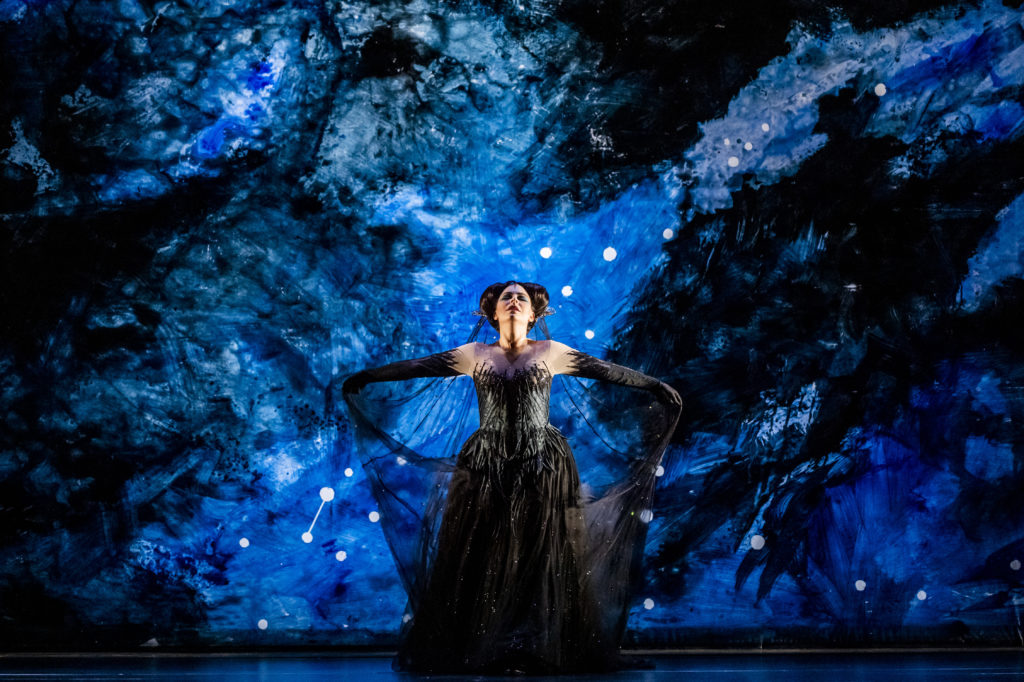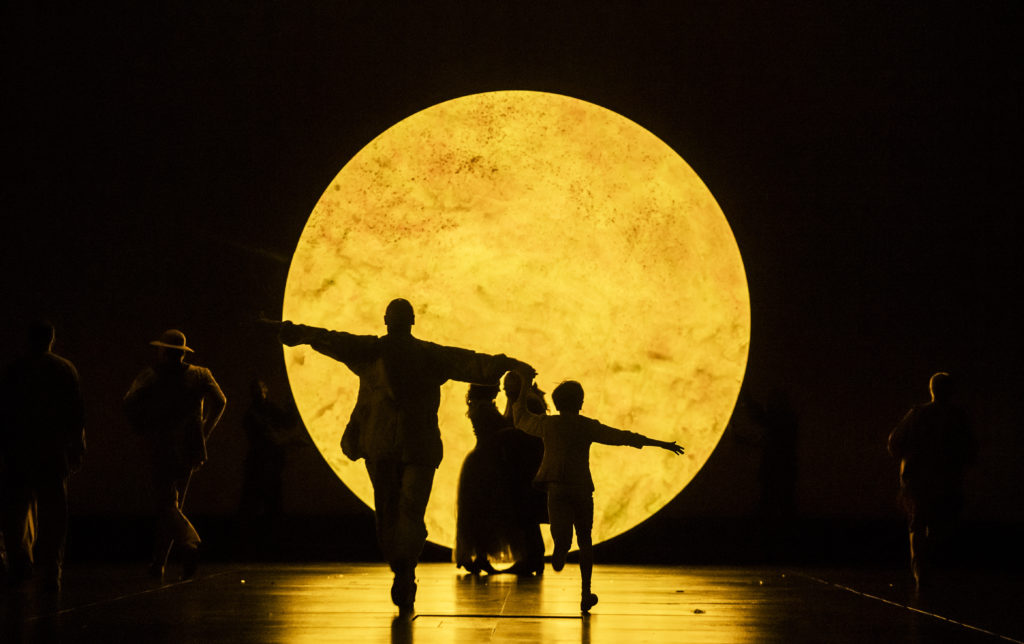
Tuuli Takala as Queen of the Night, photo by Tristram Kenton
Night Moves
Die Zauberflöte, singspiel in two acts; music by Wolfgang Amadeus Mozart, libretto by Emanuel Schikaneder, Orchestra of the Royal Opera House conducted by Leo Hussain, 6th revival of director David McVicar’s 2003 production, revival director Bárbara Lluch, Royal Opera, 1st November 2019, reviewed by Leslie Jones
Reinhold Hanisch recalls a conversation that he had with Hitler, on the bread line in Vienna. Citing Die Zauberflöte, Hanisch suggested that Mozart was a much greater composer than Wagner. Hitler flew into a rage. He considered Mozart’s work superficial and sentimental.
Imbued as it is with humanistic, nay Masonic, ideals of peace, progress, reason and love, Hitler evidently detested Die Zauberflöte. The character of the Queen of the Night, bent on murder and revenge, was more in line with his social-Darwinist thinking. Yet, paradoxically, there are anticipations of The Ring in Mozart’s late masterpiece. Its hero Tamino, who contends with a giant serpent, prefigures Siegfried. The Queen’s Three Ladies, brilliantly performed on this occasion by Kiandra Howarth, Hongni Wu and Nadine Weissmann, likewise, bring to mind the Rhine Maidens. And for Alberich, read Monostatos (Rodell Rosel, suitably sinister). Indicatively, a production of Der Ring des Nibelungen, at Strasbourg, is one of director David McVicar’s credits.
There is much to enjoy in this family friendly, indeed seasonal, revival of Die Zauberflöte – notably the choreography, the puppetry, the lighting and the sets. The giant moon and sun were memorable. Ditto, the Three Boys’ flying machine, reminiscent of Chitty Chitty Bang Bang. Soprano Elsa Dreisig, as Pamina, has a charming voice and a compelling personality. But apart from the German bass Andreas Bauer Kanabas, as Sarastro, there were no other stand out performances. And the misogynistic assertions in the libretto – “Women do little and talk a lot”, “Without a man, a woman cannot fulfil her destiny” etc, grated.
According to one commentator, Die Zauberflöte is “…a terrifying… journey in pursuit of love, wisdom and happiness” (WhatsOnStage). Nicholas Till refers to the contrast “between [the] spiritual and material values” articulated by Prince Tamino (Benjamin Hulett) and Papageno (Vito Priante) respectively (‘Freemasonry and the Enlightenment’, Official Programme). A supposedly comic work, there is a serious, even tragic, side to this opera. Two of the characters, namely Palmira and Papageno, contemplate suicide. And one of Tamino’s trials, in similar vein, is to conquer the fear of death. Mozart himself died shortly after the first performance.

Photo by Tristram Kenton











See Erik Levi, “Mozart & the Nazis” (Yale 2010).
Goethe was a mason too, another problem for them.